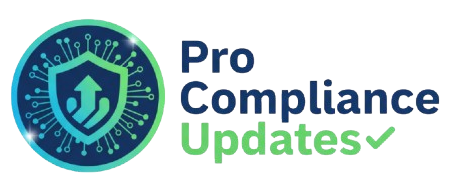Figuring out how to navigate and comply with the Americans with Disabilities Act can be difficult in itself. So when FMLA or Workers’ Compensation are also involved, confusion about how each law applies is understandable.
There are a number of misconceptions about the Americans with Disabilities Act (ADA), the Family and Medical Leave Act (FMLA), and workers' compensation, including:
ADA
Some people think that the ADA is misused by people with vague complaints or diagnoses. However, the ADA requires employers to make reasonable accommodations for qualified individuals with disabilities, unless doing so would cause undue hardship.
FMLA
Some people think that employees must explicitly request FMLA leave. Others think that employers can deny reduced schedule or intermittent leave if it's disruptive to the workplace. However, the FMLA allows workers time off for family or health reasons that constitute a serious health condition.
Workers' compensation
Some people think that workers' compensation benefits are only for incidents where the employer or a third party is at fault. Others think that workers' compensation only covers physical injuries, leaving those with psychological conditions without support. Workers' compensation provides compensation for lost wages and medical treatment for employees facing a work-related injury.
Learn how to mitigate these regulations and avoid the legal landmine it represents.
WHY SHOULD YOU ATTEND?
The implication of violating federal regulations can issue huge fines, penalties and even criminal sanctions. Mitigating these regulations can be a legal landmine and have workplace compliance. This training will provide the necessary tools and resources to navigate these regulations and be clear about the compliance expectations.
LEARNING OBJECTIVES
- Learn the differences between each of the FMLA, ADA and Workers Compensation requirement
- Learh how the reasonable accommodation interactive process can help navigate the ADA regulations
- Learn how FMLA can overlap with the ADA
- Learn how the Workers Compensation Insurance has it’s own requirement in the workplace
- Learn how to Provide a summary of the various types of federal, state and local employee leave and disability laws that may be in play when an employee (or their family member) requires time away for medical reasons
- Learn how these laws will commonly overlap and interact
- Learn the challenges faced by multi-state employers in administering disability and leave laws
- Learn the highlights common pitfalls and misconceptions that may increase the risk of employer liability
WHO WILL BENEFIT?
- All Employers
- Business Owners
- Company Leadership
- Compliance professionals
- HR Professionals
- Managers/Supervisors
- Employers in all industries
The implication of violating federal regulations can issue huge fines, penalties and even criminal sanctions. Mitigating these regulations can be a legal landmine and have workplace compliance. This training will provide the necessary tools and resources to navigate these regulations and be clear about the compliance expectations.
- Learn the differences between each of the FMLA, ADA and Workers Compensation requirement
- Learh how the reasonable accommodation interactive process can help navigate the ADA regulations
- Learn how FMLA can overlap with the ADA
- Learn how the Workers Compensation Insurance has it’s own requirement in the workplace
- Learn how to Provide a summary of the various types of federal, state and local employee leave and disability laws that may be in play when an employee (or their family member) requires time away for medical reasons
- Learn how these laws will commonly overlap and interact
- Learn the challenges faced by multi-state employers in administering disability and leave laws
- Learn the highlights common pitfalls and misconceptions that may increase the risk of employer liability
- All Employers
- Business Owners
- Company Leadership
- Compliance professionals
- HR Professionals
- Managers/Supervisors
- Employers in all industries
Speaker Profile
 Margie Faulk
Margie Faulk
Margie Faulk is a senior level human resources professional with over 15 years of HR management and compliance experience. A current Compliance Advisor for HR Compliance Solutions, LLC, Margie, has worked as an HR Compliance advisor for major corporations and small businesses in the small, large, private, public and Non-profit sectors. Margie has provided small to large businesses with risk management strategies that protect companies and reduces potential workplace fines and penalties from violation of employment regulations. Margie is bilingual (Spanish) fluent and Bi-cultural.Margie’s area of expertise includes Criminal Background Screening Policies and auditing, I-9 document correction and storage compliance, …
Upcoming Webinars

Leadership: Strategic Planning and Decision Making

Writing Techniques for Auditors and Risk Management Profess…

Language is Code - Intro to AI - Generative AI - ChatGPT an…

Gossip-Free: Leadership Techniques to Quell Office Chatter

Do's and Don'ts of Giving Effective Feedback for Performanc…

Women’s Hostility to Women at Work: Myth or Reality

4-Hour Virtual Seminar on Audit Proofing your Payroll Opera…

Do's and Don'ts of Documenting Employee Behaviour, Performa…


Retention Starts Here: Stop Losing Your Critical Talent and…


Practice Safe Stress ™: Preventing Burnout While Building R…

Impact Assessments For Supplier Change Notices

Cleanroom, Microbiology and Sterility Assurance Practices f…




Thriving in a Hybrid Workplace: Keys to Leadership and Team…

2-Hour Virtual Seminar on DeepSeek vs ChatGPT AI for CPAs a…

Understanding EBITDA – Definition, Formula & Calculation

FDA Regulation of Artificial Intelligence/ Machine Learning

Construction Lending And Real Credit Administration: Evalua…

Sunshine Act Reporting - Clarification for Clinical Research

How the OBBB Act will Impact Immigration Enforcement! Preve…


2-Hour Virtual Seminar on Outlook - Timesaving Tips and Tri…


Leadership Upskilling: Don’t Just Manage; Lead with Influen…

H-1B Visa Updates and Employer Strategies for 2026

Aligning Your HR Strategy with Your Business Strategy: A Ro…

HIPAA 2025 – Major Changes, Latest Rulings & Guidance

AI for Excel Professionals: Enhancing Productivity with Cha…

Dealing With Difficult People: At Work & In Life

Understanding Accounting for non - Accounting professionals



Excel Power Skills: Master Functions, Formulas, and Macros …
